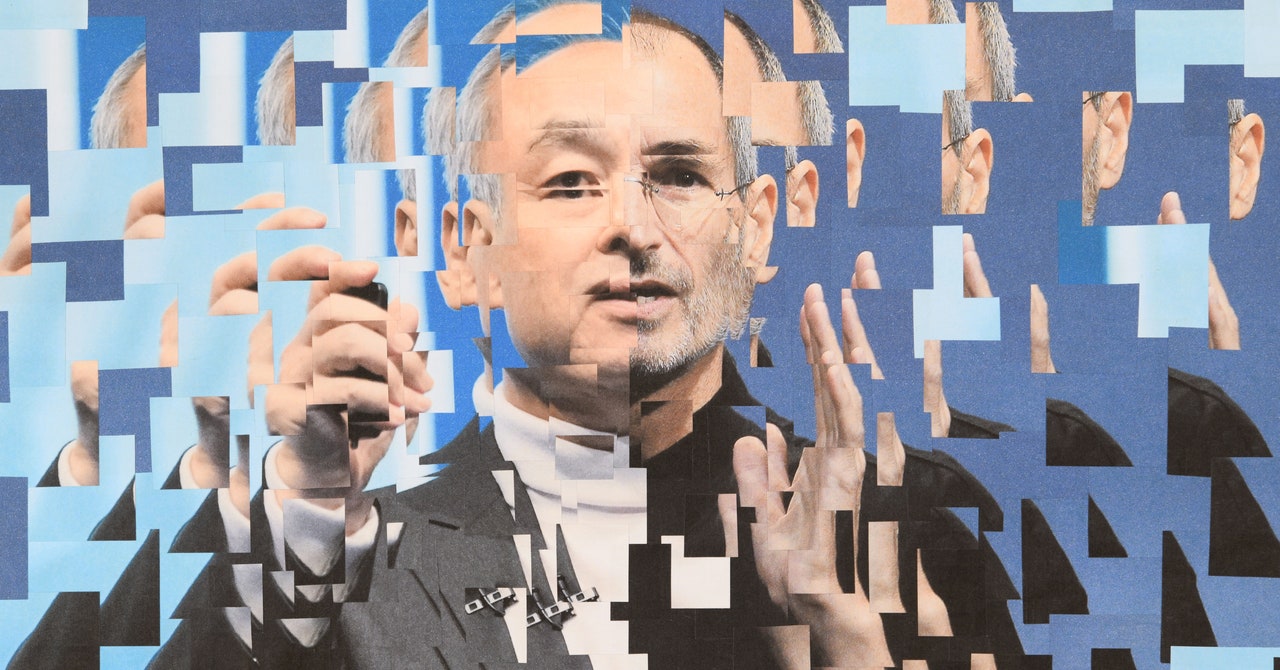Ellison’s home was in fact more like a village, a compound of intricately fashioned wooden houses modeled after a Japanese emperor’s palace. The 23-acre estate took almost a decade to design and build, including a lake and a waterfall operated by an on-off switch. All the buildings were constructed without nails and had mud-plastered walls designed to withstand a 7.3 Richter-scale earthquake. In total, Ellison’s homage to Japanese culture and history was worth around $70 million.
The talk around the table that day was about crazy internet valuations in the stock market. But Masa and Jobs were more interested in what would happen after the dotcom bubble. “I said that I was focused on the internet—and he agreed the internet was the future,” Masa says. Both men grasped that a paradigm shift was coming. Movements in the Nasdaq were one thing; the advent of the networked world, in which Apple played a leading role as innovator and SoftBank the part of investor and operator, was quite another.
Apple was, by then, one of the world’s most valuable companies, with a suite of smash-hit products from Mac laptops to the iPod. Like Masa, Jobs was paranoid about rivals stealing his ideas. No Apple project was more top secret than the iPhone, the touchscreen smartphone that would sell billions and revolutionize personal communications.
By Masa’s account, on a visit to California, sometime in the summer of 2005, he showed Jobs his own sketch of a mobile-enabled iPod that had a large display and used the Apple operating system. The new device, he predicted, would be able to process data and images. Jobs pooh-poohed the idea but could not resist dropping hints about the iPhone.
Jobs: “Masa, don’t give me your shitty drawing. I have my own.”
Masa: “Well, I don’t need to give you my dirty piece of paper, but once you have your product, give it to me for Japan.”
Jobs refused to reveal any more detail, but Masa spotted the flicker of a smile on the Apple boss’s face. After pressing him further, Masa wangled a follow-up meeting at Jobs’ Tudor-style country home in Palo Alto. At that meeting, Masa claims, Jobs agreed in principle to give SoftBank exclusive rights to distribute the iPhone in Japan. “Well, Masa, you are crazy,” said Jobs. “We have not talked to anybody, but you came to see me first. I’ll give it to you.”
Nothing was written down. There was no discussion of price or volume. Just a gentleman’s agreement, based on the assumption that Masa would have the financial wherewithal to build or acquire a mobile phone business. “It was super confidential. I never saw the product before it arrived in Japan [in 2008],” Masa claims. “Steve never even told me the name.”
The tale has a mythical quality. It assumes Jobs gave his word a full three years before Apple launched the iPhone in Japan. Yet that very promise may well have given Masa the confidence to buy Vodafone Japan, the British-owned “also-ran” that used football icon David Beckham in its marketing campaign. This was a highly leveraged deal—the biggest to date in Asia—but Masa gambled that he had a game-changing product in the pipeline. Whatever the precise chronology, Masa pulled off the distribution deal of the century, which enabled him to build a profitable consumer business in Japan, massively enhancing the SoftBank brand.
On March 17, 2006, Masa clinched his $17 billion deal to buy Vodafone Japan. Two weeks later, Jobs flew to Tokyo, where Masa challenged the Apple boss to uphold his end of the deal. “You didn’t give me anything in writing, but I made a $17 billion bet based on your word,” he said. “You had better feel a tiny bit of responsibility.” Jobs laughed and said, “Masa, you are a crazy guy. We will do what we discussed.”
